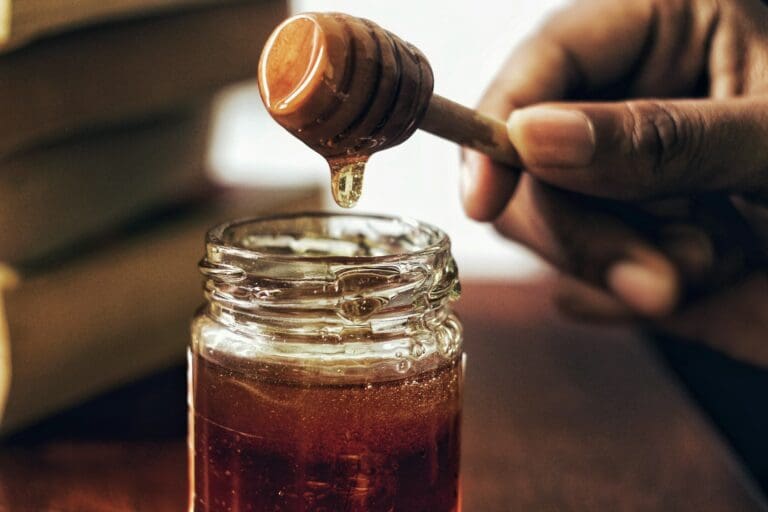Summer is the perfect time for barbecues, picnics, and outdoor gatherings with friends and family. However, with the warm weather comes an increased risk of food poisoning. Food poisoning is caused by the consumption of contaminated food and can lead to severe illness and even death. Here are some tips to help you stay safe while enjoying your favorite summer foods.
Practice Good Food Safety Habits
One of the best ways to prevent food poisoning is to practice good food safety habits. This includes washing your hands before and after handling food, washing fruits and vegetables thoroughly before eating, and avoiding cross-contamination by using separate cutting boards and utensils for raw and cooked foods.
When preparing food, it’s important to avoid touching your face, hair, or any other part of your body. This can transfer harmful bacteria from your body to the food, increasing the risk of food poisoning.
You should also ensure that your kitchen and cooking utensils are clean and sanitized. Clean your kitchen counters, cutting boards, and utensils with hot, soapy water before and after use.
Cook Food Thoroughly
Cooking food thoroughly is essential to kill any harmful bacteria present in the food. Use a meat thermometer to ensure that meat is cooked to the appropriate temperature. Ground beef should be cooked to an internal temperature of 160°F, while poultry should be cooked to an internal temperature of 165°F.
When cooking meat, it’s important to avoid cross-contamination. Use separate cutting boards and utensils for raw meat and cooked food, and wash your hands thoroughly after handling raw meat.
Keep Food at Safe Temperatures
Food that is left out in the sun or at room temperature for too long can become a breeding ground for bacteria. Keep hot foods hot and cold foods cold to prevent the growth of harmful bacteria. Use a food thermometer to ensure that hot foods are kept at a temperature of 140°F or above, and cold foods are kept at a temperature of 40°F or below.
When transporting food to a picnic or barbecue, pack it in a cooler with ice or frozen gel packs. This will help to keep the food at a safe temperature and prevent the growth of harmful bacteria.
Be Mindful of Food Sources
When buying food for your summer gatherings, it’s essential to be mindful of the source of the food. Buy meat and poultry from reputable sources and avoid buying pre-cut fruits and vegetables, which are more prone to contamination. Make sure that all fruits and vegetables are washed thoroughly before eating.
When purchasing meat, look for cuts that are well-trimmed and have minimal visible fat. This can reduce the risk of contamination and ensure that the meat is cooked evenly.
Store Food Properly
Proper storage of food is essential to prevent the growth of harmful bacteria. Store raw meat and poultry in the refrigerator or freezer, and keep them separate from other foods. Use airtight containers to store leftovers and discard any food that has been left out for more than two hours.
When storing food in the refrigerator, make sure that it is below 40°F. Use a thermometer to check the temperature of your refrigerator and adjust it as necessary.
Be Cautious with Buffet-style Meals
Buffet-style meals can be a breeding ground for bacteria, as the food is often left out for extended periods. If you’re attending a buffet-style meal, make sure that the food is kept at safe temperatures and avoid eating food that has been left out for too long.
When serving food at a buffet-style meal, use chafing dishes or other warming devices to keep the food at a safe temperature. Discard any food that has been left out for more than two hours.
Be Aware of Food Recalls
Food recalls happen frequently, and it’s essential to be aware of them, especially during the summer months. Before buying food, check the FDA website to see if any recent recalls have been issued.
If you have purchased a recalled product, follow the instructions provided by the manufacturer or the FDA. This may include returning the product to the store or disposing of it in a specific way.
Know the Symptoms of Food Poisoning
It’s essential to know the symptoms of food poisoning, as early treatment can prevent severe illness. Symptoms of food poisoning include nausea, vomiting, diarrhea, stomach cramps, and fever.
If you experience any of these symptoms after eating, seek medical attention immediately. In some cases, food poisoning can lead to serious complications, especially in young children, the elderly, and people with weakened immune systems.
Conclusion
By following these tips, you can reduce your risk of food poisoning and enjoy a safe and healthy summer. Practice good food safety habits, cook food thoroughly, keep food at safe temperatures, be mindful of food sources, store food properly, be cautious with buffet-style meals, be aware of food recalls, and know the symptoms of food poisoning. Stay safe and happy summer eating!

